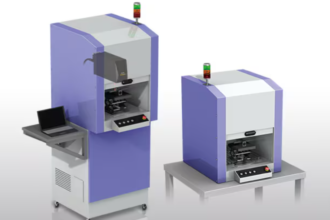WordPress is a beginner-friendly platform that helps users make their existence easy without dealing with technical knowledge.
The WordPress database will gather all the information like usernames, login credentials, posts, plugins, pages, configuration files, and themes. Basic knowledge of databases helps to ensure the smooth processing of your website.
What is a WordPress database?
It is a strong system that stores and fetches information in a structured format. The main aim is to manage the webpage’s functioning with the right information. WordPress deals with MySQL as its database management system. There are three types of information stored:
- Content: It holds the data in a web page like posts, categories, comments, and tags
- Account Data: This will contain user information like username, password, contact details, and more.
- Configuration Setting: It stores the data about the website settings like URL, plugin settings, widgets, cached information, and themes.
Depending on your platform, the database can be simple, complicated, big, or small. The main aim is to access the information seamlessly. The simple process to create a WordPress database:
Command Line in MySQL
This is preferred when the user does not want to deal with phpMyAdmin. It allows you to run commands and queries to manage the database efficiently.
MySQL Database Wizard in web hosting
This is the simplest method to create a database in WordPress. It is designed with the MySQL database wizard in the web hosting control panel.
Using phpMyAdmin
Sometimes the user interface is not easy to use, so people prefer to handle the database creation in phpMyAdmin if they have the right.
What are the important segments of the WordPress database?
After installing the platform, you will have some default tables in the WordPress database. Every table will gather information for different features and functionalities that a potential WordPress web Development Company manages in case you do not have the right knowledge.
WordPress has tables which are sections in the database system. Every table is a combination of information added to your website. Let us look at these default tables:
- wp_users: This holds users’ data like their email, username, password, and more.
- wp_usermeta: It will contain the Meta information of the registered users on the website.
- wp_terms: The platform has a powerful taxonomy system that helps to keep the content organized. Individual taxonomy items are known as terms that are stored in the table.
- wp_termmeta: This allows the developers to store custom metadata for the terms.
- wp_taxonomy: This table will define the taxonomies of the terms in the wp_terms table.
- wp_term_relationship: It holds the relationship of the WordPress post types with the terms.
- wp_comments: It contains WordPress comments, which include the author’s name, comment, URL, email, and more.
- wp_commentmeta: This will have the meta information about the comments added to your WordPress website.
- wp_posts: It will hold the information about the post or content type. This table includes posts, pages, custom post types, and revisions.
- wp_postmeta: This table contains meta-information about the posts, pages, and custom post types.
- wp_link: This manages thelist of hyperlinks in the website created in WordPress or another plugin.
- wp_options: It contains the website settings like URL, default category, posts per web page, admin email, time format, and more.
How to handle your WordPress database smartly?
1. Clean your database
Normally, your WordPress database will save everything on the website and different things. This hinders the performance, and it is important to clear the unnecessary information and retrieve a lot of space.
Some tips you might want to use are:
- Remove unnecessary information like trash, spam comments, stale data, trackbacks, pingbacks, and expired transient
- Make use of compact MySQL tables
- Automate the clean-up process at regular intervals
- Automate backup of the website
- Work on the database statistics and potential solutions
This will make space in your database and increase speed and efficiency.
2. Caching web pages and content
This process completely depends on your website setting, as if managed perfectly, it will boost the speed and performance. It involves storing the dynamic data in a temporary space so that it is easier to retrieve. You might need to hire WordPress developer to get faster page loads. Some extra features that you must look for are:
- Multisite support: It means that the process can be applied on multiple WordPress websites at the same time.
- Higher Flexibility: The tool should allow you to choose individual items or combinations for caching.
- Deleting Data: There must be a filter to remove images, content, or more information to make this process effortless.
- Scheduling: Some plugins provide various choices to schedule the caching process and run clean-ups at a specific interval. This makes it easier for the website owner to optimize and deliver a better user experience.
3. Compress Media
Adding large media will slow down the loading time of the website. There are many tools and plugins in WordPress that help to compress images, videos, or other multimedia for better performance. Some features you need to look for are:
- Restore Original: This will allow you to get the original images at any point.
- Data Storage: It is important to store the image information even after it is compressed.
- Bulk Compression: It becomes handy to compress multiple images at once.
- Automation: The feature that will automatically compress the images added to the website.
Many plugins in WordPress have great features and functionalities to compress media according to your requirements. Integrating the right one is important to ease the process and enhance the page loading speed for a better user experience.
The Final Note!
Managing the WordPress database is highly crucial to run the platform smoothly. It is important to get your expertise as one single mistake can affect the whole website’s performance and lose potential customers.
When getting support from an experienced WordPress web Development Company,your journey to scale your business becomes easier. They will handle the database and gives you enough time to focus on the core part of the business.















